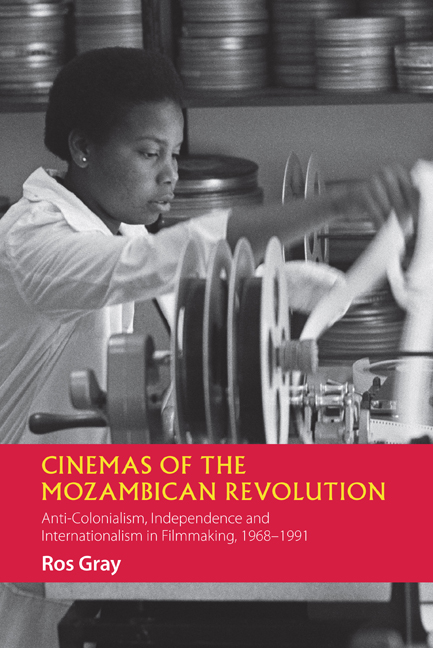 Cinemas of the Mozambican Revolution
Cinemas of the Mozambican Revolution Published online by Cambridge University Press: 16 July 2020
On 4 March 1976, the Instituto Nacional de Cinema (INC) opened on 946 Avenida Agostinho Neto. In an interview in 2005, Manuel Malo recounted to me the story of how it was that he came to work for the INC some weeks later. Malo had been employed at the colonial production house owned by Antonio Melo Pereira, whose output prior to independence included the newsreel Actualidades de Moçambique ‘news of Mozambique’ and pornographic films destined for the South African market. Malo recalled that:
In the company where I worked … everything stopped when the coup happened in Portugal on 25 April 1974… . During that time the ‘nationalisations’ happened, in which abandoned businesses were taken. But in the case of Melo Pereira's laboratory, it hadn't been abandoned. He had only made a trip to Portugal when his laboratory and equipment was seized. I was the only Mozambican working for Melo Pereira's company, up until 1976. Before there had been a few other Mozambicans, but they were older than me and had been conscripted into the military. From 25 April, the only Mozambican working there was me. The others were three Portuguese, and they soon went back to Portugal because Melo Pereira said he didn't have the money to continue paying them whereas I received much less money… . So from 1974 to 1976 I kept hold of the key to the studios, and every day I went there, opened the doors, cleaned the equipment, and stayed there waiting… . Then one Monday morning when I arrived there was a man in a suit standing at the door. I had no idea who he was. I took the keys from my bag, went to open the door, but the man told me to wait, saying: ‘Don't open the door.’ I was astonished and asked him who he was, to which he replied: ‘I have orders not to let anyone enter this building.’ Finally he identified himself, saying he was from the Polícia de Investigação Criminal (PIC)… . I collected the few personal things I had and he took the key, even though I was scared to hand it over to him… .
To save this book to your Kindle, first ensure [email protected] is added to your Approved Personal Document E-mail List under your Personal Document Settings on the Manage Your Content and Devices page of your Amazon account. Then enter the ‘name’ part of your Kindle email address below. Find out more about saving to your Kindle.
Note you can select to save to either the @free.kindle.com or @kindle.com variations. ‘@free.kindle.com’ emails are free but can only be saved to your device when it is connected to wi-fi. ‘@kindle.com’ emails can be delivered even when you are not connected to wi-fi, but note that service fees apply.
Find out more about the Kindle Personal Document Service.
To save content items to your account, please confirm that you agree to abide by our usage policies. If this is the first time you use this feature, you will be asked to authorise Cambridge Core to connect with your account. Find out more about saving content to Dropbox.
To save content items to your account, please confirm that you agree to abide by our usage policies. If this is the first time you use this feature, you will be asked to authorise Cambridge Core to connect with your account. Find out more about saving content to Google Drive.